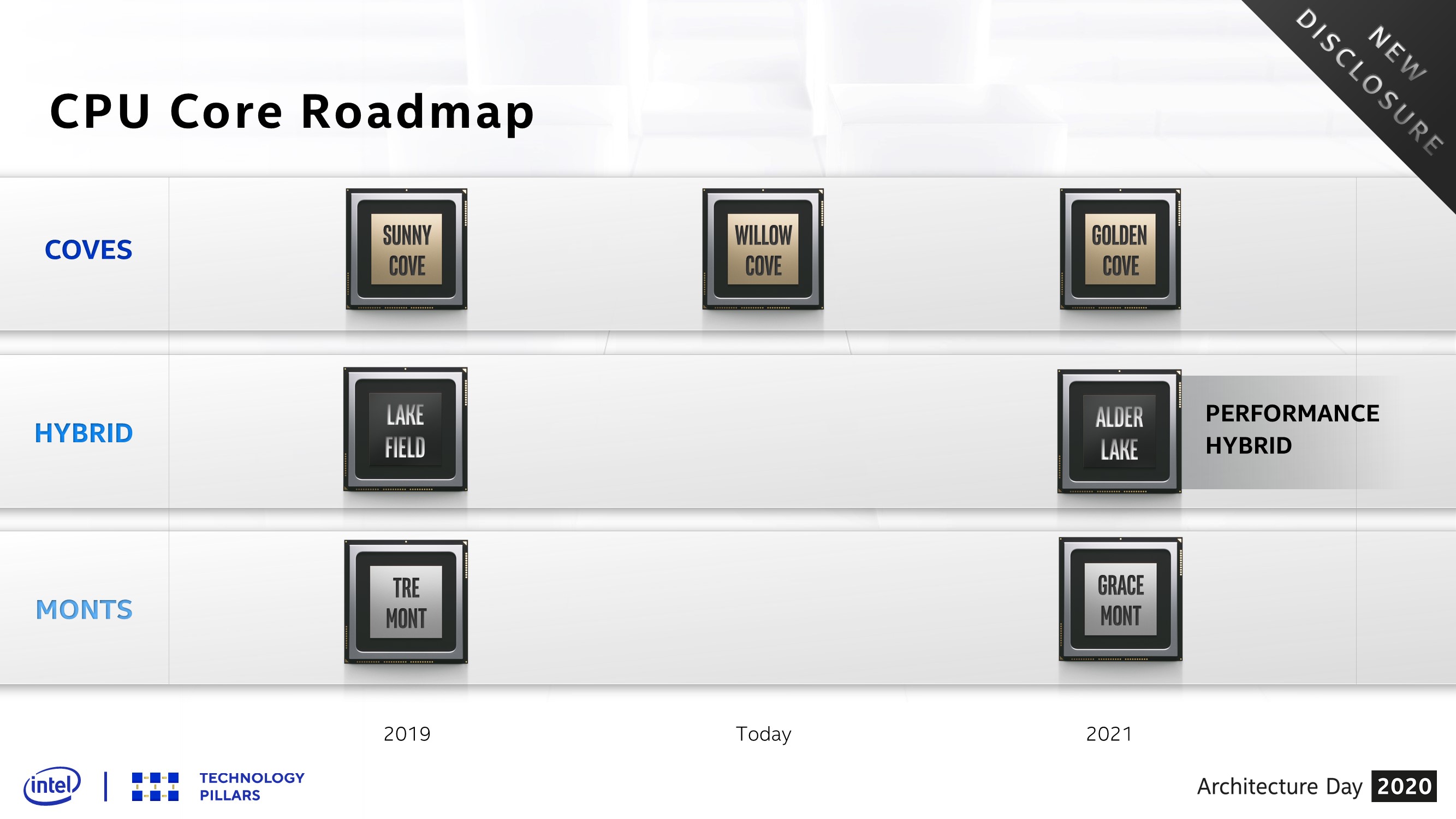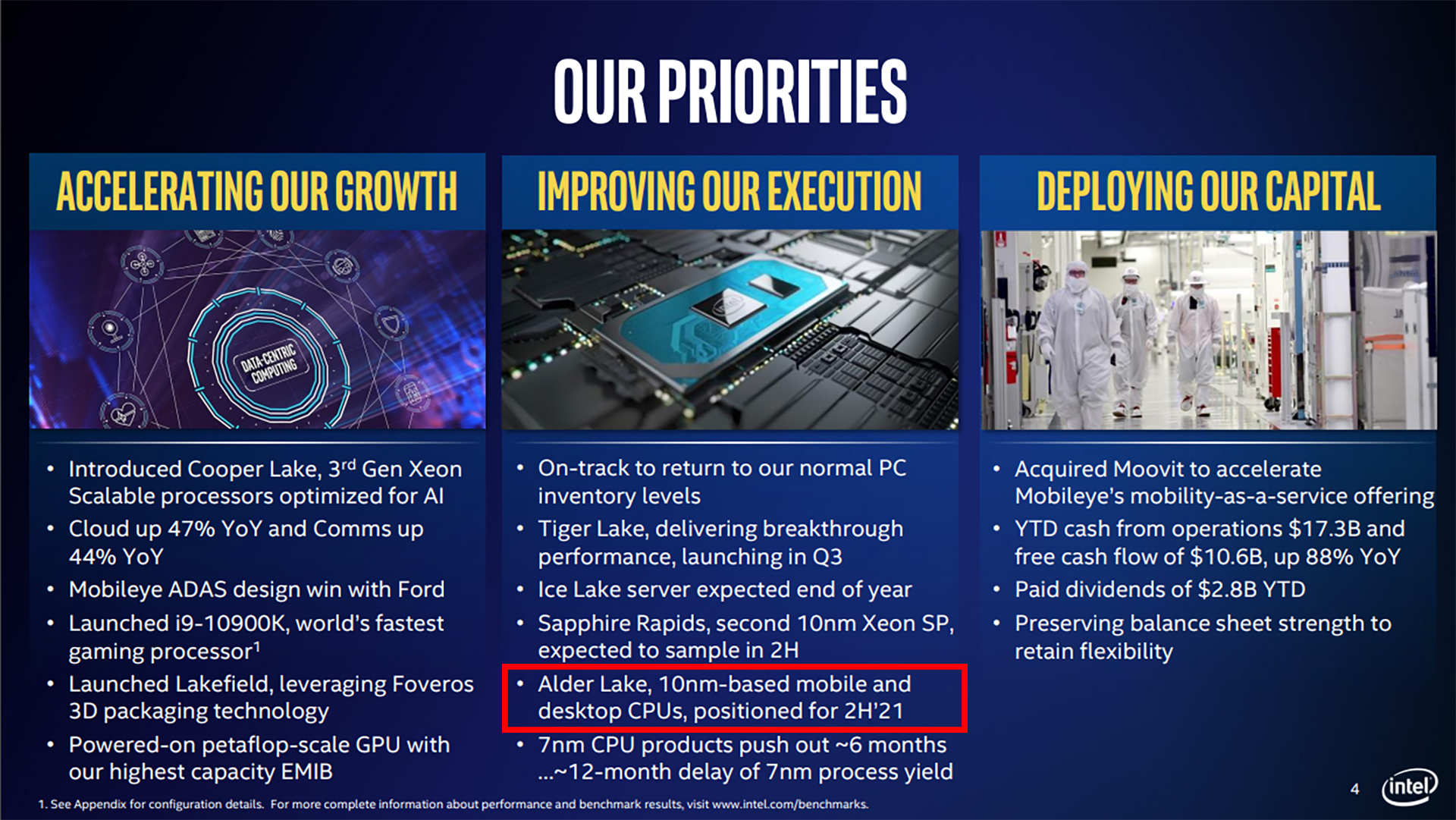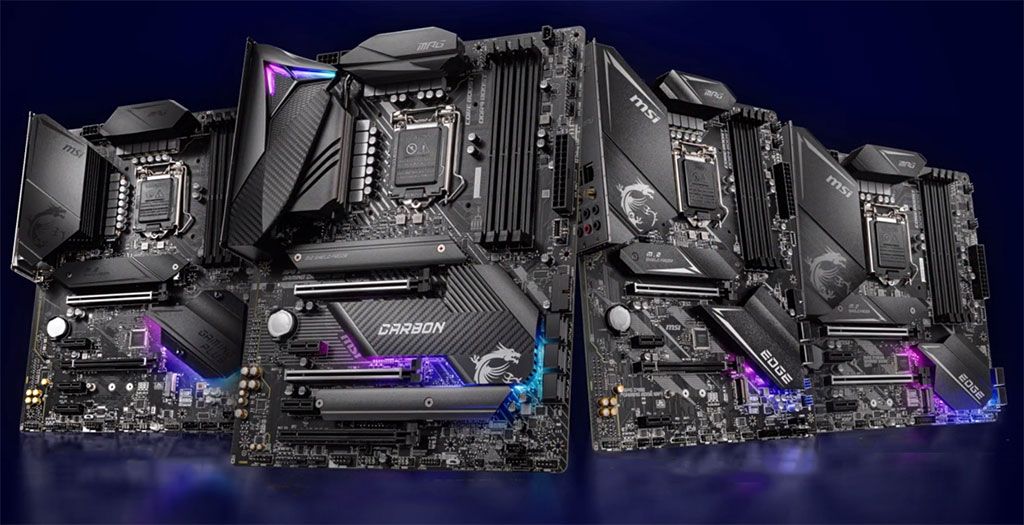Intel's next-gen gaming chips will take a huge architectural risk to rival AMD's Ryzen
Intel confirms that Alder Lake, coming 2021, will feature a hybrid computing architecture.

Intel Alder Lake will be a hybrid architecture, Intel confirms. The next-generation client processor architecture, expected to arrive in the second half of 2021 for both mobile and desktop, will be a combination of two CPU architectures: Golden Cove and Gracemont. The aim is to provide an efficient answer for both high performance and high core-count processing for games and productivity tasks. In short, this is Intel's answer to high core-count AMD Ryzen chips.
Alder Lake as been rumoured to take a hybrid approach for some time, although confirmation has only come during Intel's latest Architecture Day 2020.
So what does a hybrid architecture actually mean for us? That's a great question, because the hybrid architecture has usually, at least in its infancy, been used for battery-dependent mobile devices. Take a modern laptop: you want both performance when you need it, and superb battery life. To do that, you need a highly efficient processor, and one way of building such a chip is to use both low-power cores and high-power cores.
At the core of a hybrid architecture is the idea that the low-power cores will do as much of the work as they can at a high level of efficiency. Once they are overloaded and literally cannot deal with the workload, they shift that thread over to the high-performance core. These high-performance cores may not be as efficient, but they're quicker, more powerful, and only turned on when needed.
Thus a more power efficient chip is born.
It's a technique Intel has used before with its Lakefield chip. That mobile-only architecture comprises just a single Sunny Cove Core core and four low-power Atom cores, and no HyperThreading. A recent patent by AMD suggests it's also looking at a similar approach, although a patent filing these days doesn't mean much.

Most commonly such hybrid architectures are found under the Arm big.LITTLE branding, however.
Keep up to date with the most important stories and the best deals, as picked by the PC Gamer team.

Best gaming motherboard: the best boards around
Best AMD motherboard: your new Ryzen's new home
And that's why Intel's decision to load up a hybrid architecture on desktop (as confirmed in Intel's Q2 earnings call) had us stumped. It would allow it to claim 16 cores per chip—in the eight Golden Cove, eight Gracemont configuration—but the power efficiency would have minimal impact on a wired up desktop machine.
But Intel tells us Alder Lake, on the desktop at least, is purely tuned for performance.
"While Lakefield was tuned for battery life," Intel reps tell us, "we are advancing our hybrid architecture significantly with a focus on performance for Alder Lake. We are working on next generation hardware guided scheduler, optimized for performance and leveraging all cores seamlessly. Alder Lake will not only be great for performance but our best performance/Watt architecture."
Efficiency goes further than battery life. It also means smaller coolers and less wasted energy. That's something I can absolutely get behind. The move should also mean Intel is able to hone the single-core prowess, and clock speed, of the high-powered cores while maintaining a semblance of reasonable power draw for multithreaded workloads.
The expected move to eight Golden Cove cores would also see Intel lop two high-performance cores of the current total of 10 with its top Comet Lake chips. These would be 10nm cores, at least, and presumably come with a greater instruction per clock (IPC) than the ageing Skylake microarchitecture.
It's certainly an innovative, and risky, move on Intel's part. AMD opted for a chiplet architecture back with Ryzen and that paid off massively in terms of performance, both single-threaded and multithreaded, and price. Intel's eyeing a different approach, but one that could see it compete across the board if successful. In order to do so, it would have to make the passing off of threads between cores, per workload, seamless to the overall system and software.
With an expected release window sometime in the second half of 2021, we'll soon find out how Alder Lake stacks up against the current best CPUs for gaming and AMD's Zen 3 lot.

Jacob earned his first byline writing for his own tech blog. From there, he graduated to professionally breaking things as hardware writer at PCGamesN, and would go on to run the team as hardware editor. He joined PC Gamer's top staff as senior hardware editor before becoming managing editor of the hardware team, and you'll now find him reporting on the latest developments in the technology and gaming industries and testing the newest PC components.

